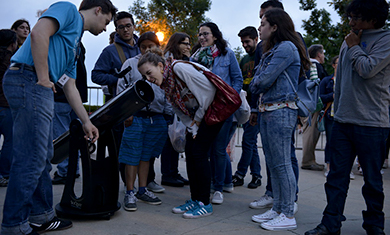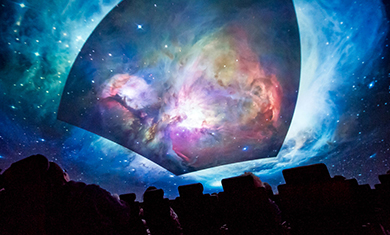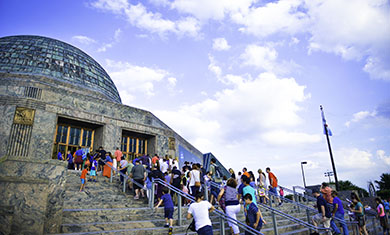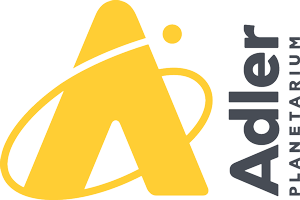Space Visualization Lab
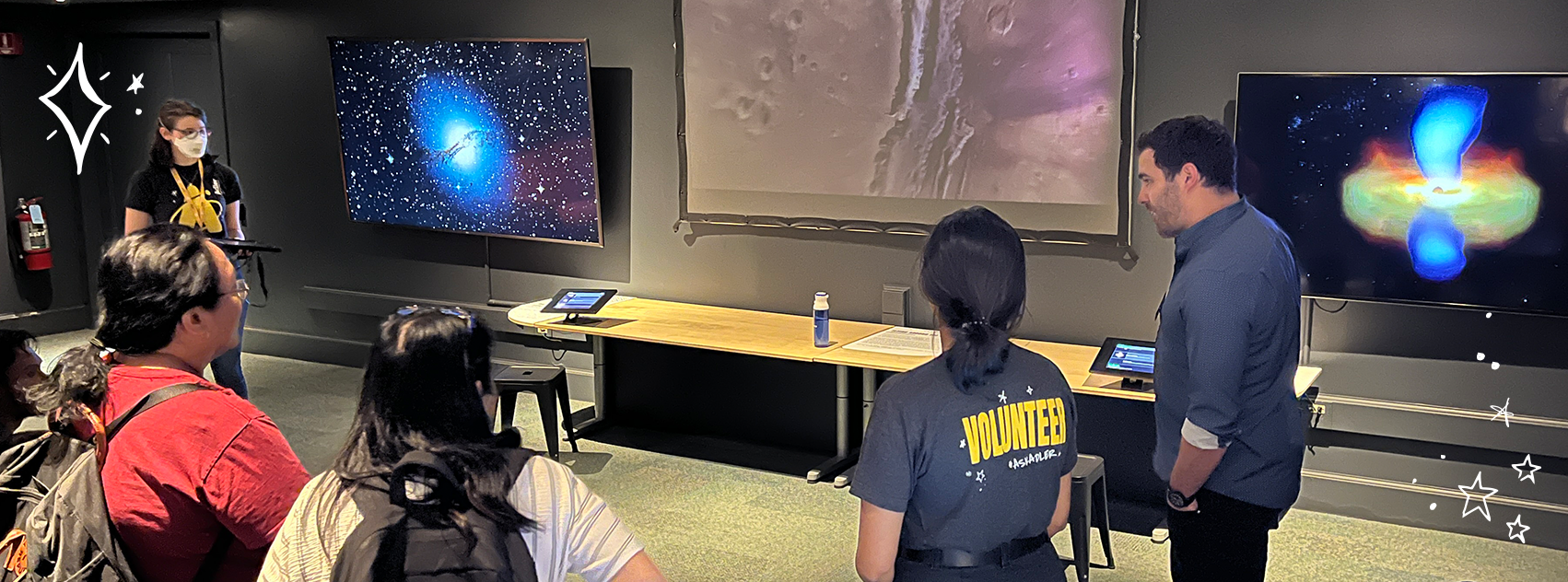
Talk to astronomers about cutting-edge research and experience awe-inspiring visualizations!
In this working laboratory, scientists, technology experts, artists, and educators work together to create new ways for people to virtually explore the universe. Since its inauguration in 2007, the Space Visualization Lab has brought cutting-edge research from scientists in the most prominent institutions around the country, as well as immersive and interactive technologies to the museum floor. In the Space Visualization Lab, visitors can experience new interactive and immersive visualizations and attend presentations by astronomers and related researchers featuring these visualizations.
Astronomy Conversations
As the featured program inside the Space Visualization Lab (SVL), Astronomy Conversations hosts Adler researchers and visiting scientists to engage museum guests about their research, complemented by SVL visuals, but lets the museum guests steer the conversation towards any astronomical topic they are interested in.
Having practicing scientists interact with museum guests in this space helps to disseminate cutting-edge astronomical research while adding a crucial human element to scientific research and making space science more accessible.
- Hours: Wednesdays 6:00 pm–8:00 pm and Saturdays 1:00 pm–3:00 pm
- Hours (School Groups Only): Thursdays 11:00 am–12:00 pm
- Location: Located on the Lower Level in between the entrances to the Community Stargazers Hub, and Telescopes: Through The Looking Glass exhibitions
- Perfect for museum guests of all ages
Upcoming 2025 Adler Researchers & Visiting Scientists
Wednesday, December 31, 2025 (1:00 pm–3:00 pm, special time)
Dr. Yunyang Li (University of Chicago): Cosmology, Cosmic Microwave Background
Saturday, January 3, 2026 (1:00 pm–3:00 pm)
Dr. Stephanie Monty (Northwestern University): Galactic Archaeology, Cosmology, Instrumentation
Wednesday, January 7, 2026 (6:00 pm–8:00 pm)
Dr. Yunyang Li (University of Chicago): Cosmology, Cosmic Microwave Background
Thursday, January 8, 2026 (1:00 pm–3:00 pm)
Dr. Michael Zevin (Adler Planetarium): Gravitational Waves, Compact Objects, Stellar Evolution, General Astronomy
Saturday, January 10, 2026 (1:00 pm–3:00 pm)
Dr. Aashrita Mangu (University of Chicago): Cosmology
Wednesday, January 14, 2026 (6:00 pm–8:00 pm)
Ryn Grutkoski (University of Chicago): Theoretical Cosmology
Nathalie Korhonen Cuestas (Northwestern University): Galaxy Evolution
Saturday, January 17, 2026 (1:00 pm–3:00 pm)
Alex Guerrero (University of Chicago): Gravitational-wave Astronomy
Saturday, January 31, 2026 (1:00 pm–3:00 pm)
Gideon McFarland (Northwestern University): Dark Energy
Worldwide Telescope
Worldwide Telescope (WWT) is an open-source visualization software package that enables your computer to function as a virtual telescope. Adler SVL staff have contributed to the content and development of WWT. Worldwide Telescope was used to create the Adler’s former sky show, Cosmic Wonder, and it powers several exhibits throughout the museum.
